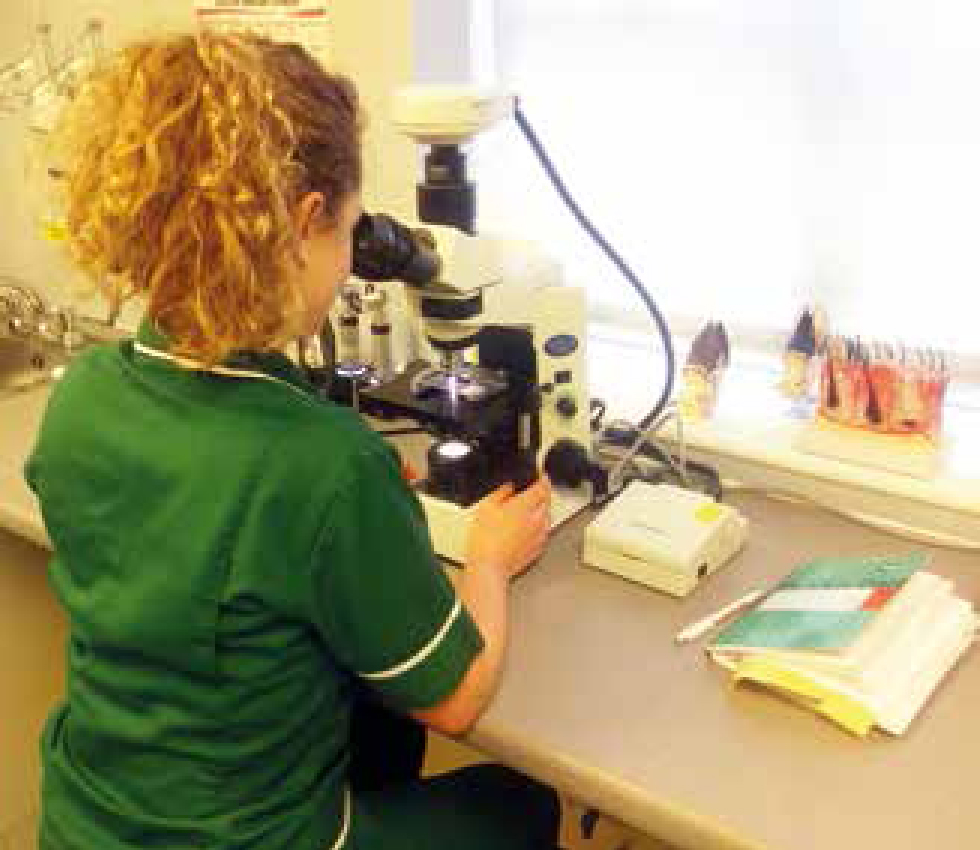I am a Registered Veterinary Nurse (RVN) and just over a year ago, with funding from The Primrose Trust and The Langford Trust for Animal Health and Welfare, I embarked on a Masters by Research [MSc(R)] in Clinical Veterinary Science at the University of Bristol, School of Veterinary Science at Langford. I am one of the first RVNs in the country, and even the world, to undertake this type of course. An MSc(R) means that the award is solely based on a research project and mine is to develop a new test for joint infections in dogs.
Joint infections occur when bacteria enter the joint and multiply, either via a penetrating injury or surgery to the joint. Diagnosis is currently based on clinical findings (lameness, joint swelling and pain) and culture of joint fluid. However, culture takes at least 48 hours and gives negative results in more than 50% of cases with active infection. Prompt diagnosis and treatment with appropriate antibiotics is important for patient outcome, as infection quickly causes irreversible damage to the joint cartilage.

The test I am developing works by detecting and multiplying bacterial DNA and will produce a result within a few hours. It should be more reliable and sensitive than culture. The aim is that this new test will greatly improve accuracy and speed up diagnosis, therefore improving the prognosis of dogs with joint infections. The test is not only limited to samples from dogs, it could be used on any species, even humans! In future, techniques could be added to the test to detect antibiotic resistance.
I started my career at the Veterinary School in Langford as an undergraduate student, where my passion for research began. Since qualifying in 2009, I have worked in small animal practice in a mixture of first opinion clinics and large referral hospitals. I soon began to realise that I really wanted to make a difference to our patients' welfare by ensuring that we were always providing the best possible care, based on current and reliable evidence. This drive to improve patient wellbeing is what led me to enrol on this course and pursue a career in research.
Research in veterinary nursing is currently very limited and needs to be built on to progress the profession and bring us more in line with our human nursing counterparts. Nonetheless, increasingly more research is being performed with the rise of graduate RVNs, who perform research as part of their undergraduate studies, and new courses, such as mine, developing. Evidence-based practice in veterinary nursing is very important to ensure that we can make informed decisions and actions, so that they are not solely based on tradition and personal experience.
It would not have been possible for me to commence my course or for this research to be carried out without funding from The Primrose Trust. The Primrose Trust is a small charity that grants donations to institutions and authorities for the purposes of animal protection. Malcolm and Sue at The Primrose Trust have devoted their lives to improving the wellbeing of animals and I am enormously grateful to them. The Langford Trust were also vital in securing this funding, so again I am hugely thankful to Elizabeth Coombs for helping to make my project happen. Lastly, I would like to thank Andrea Jeffery for organising and initiating the veterinary nursing MSc(R) programme. Without Andrea's dedication to new research in veterinary nursing, this course would not have been available. Prospective students for this course can contact the Faculty of Health Sciences postgraduate admissions office at fohs-pgadmissions@bristol.ac.uk


